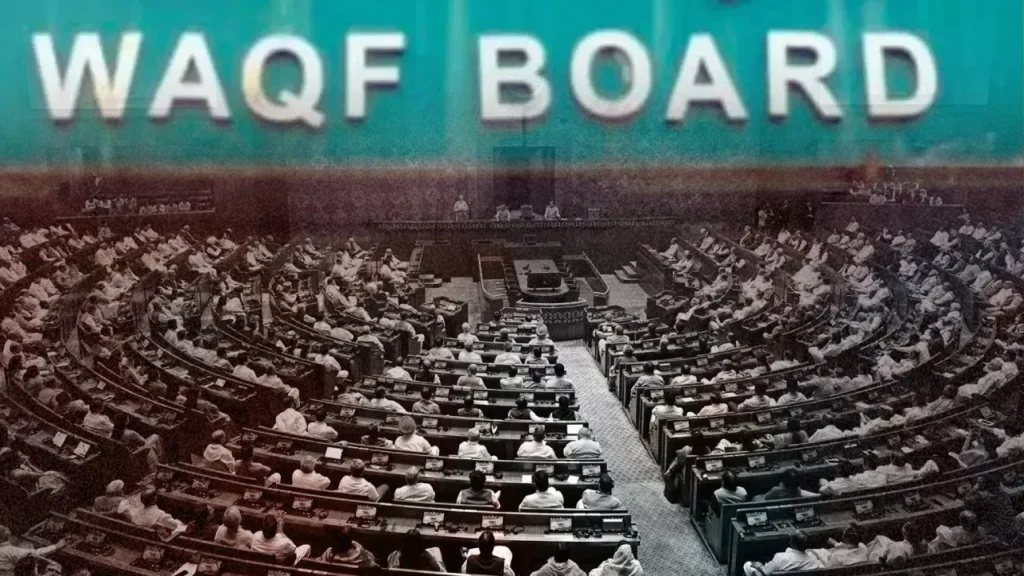The Waqf Amendment Bill 2025 has sparked widespread debate across India, with its introduction in the Lok Sabha by Union Minority Affairs Minister Kiren Rijiju.
While some regard this law as an essential step to improve the management of waqf holdings, others see it as a controversial move that poses ethical and constitutional concerns. The measure aims to amend the Waqf Act of 1995.
Waqf Amendment Bill 2025
Let’s delve into the key aspects of this bill, its implications, and the controversies surrounding it.
Understanding Waqf and Its Importance
Before diving into the amendments, it’s essential to understand what waqf entails. Waqf refers to the permanent dedication of movable or immovable property for purposes recognized as pious, religious, or charitable under Islamic law. Properties such as mosques, dargahs, graveyards, and educational institutions often fall under waqf. These properties are managed by waqf boards, which are responsible for ensuring that the assets are used for their intended purposes.
The Waqf Act of 1995 was enacted to regulate and oversee these properties, aiming to prevent misuse and ensure transparency.However, ownership concerns, administrative challenges, and corruption allegations have raised awareness of the need for reform over time.
Key Provisions of the Waqf Amendment Bill 2025
The Waqf Amendment Bill 2025 introduces several significant changes aimed at addressing the shortcomings of the existing act. Here are the key provisions:
- Enhanced Role of Technology: The bill proposes the use of technology-driven management systems to maintain waqf records. This includes digitizing property records to improve transparency and reduce disputes.
- Eligibility Criteria for Donors: One of the most debated provisions is the requirement that only practicing Muslims, for at least five years, can dedicate property to waqf. This replaces the earlier provision that allowed any individual, regardless of religion, to make such dedications.
- Inclusion of Non-Muslim Members: To promote inclusivity, the bill proposes the inclusion of non-Muslim members in central and state waqf boards. This move aims to ensure diverse perspectives in the management of waqf properties.
- Investigation of Disputed Properties: The bill mandates that an officer above the rank of collector will investigate government properties claimed as waqf. This replaces the existing system where waqf tribunals handled such disputes.
- Special Provisions for Women: The bill includes provisions to ensure that women receive their inheritance before a property is declared as waqf. It also introduces measures to protect the rights of widows, divorced women, and orphans.
Support for the Bill
Proponents of the Waqf Amendment Bill argue that it is a much-needed reform to address the inefficiencies and corruption that have plagued waqf management.
Digitizing documents is thought to be a big step toward openness since it makes it harder for fraud and manipulation to occur.Furthermore, the addition of non-Muslim members to waqf boards is seen as a progressive step that supports secularism and inclusivity.
The government has emphasized that the bill is not intended to interfere with religious practices but is solely focused on improving property management. Minister Kiren Rijiju stated, “The changes made in the Waqf law are aimed at ensuring better administration and transparency. This bill has nothing to do with religion but deals only with properties.”
Opposition and Controversies
Despite its stated objectives, the Waqf Amendment Bill has faced strong resistance from opposition parties and various stakeholders. The bill’s opponents contend that some of its aspects are unlawful and discriminatory.
- Eligibility Criteria for Donors: The requirement for donors to demonstrate that they have been practicing Islam for at least five years has been criticized as a violation of constitutional rights. Opponents argue that this provision imposes unnecessary restrictions and could lead to discrimination.
- Removal of Waqf Tribunals: The decision to transfer the authority to resolve disputes from waqf tribunals to government officials has raised concerns about potential bias and lack of expertise.
- Impact on Religious Freedom: Some critics believe that the bill could be perceived as an attempt to interfere with the autonomy of waqf boards and religious institutions.
- Political Motives: Opposition leaders have accused the government of using the bill as a tool for political gain, alleging that it targets specific communities
Implications for the Future
The Waqf Amendment Bill 2025 has far-reaching implications for the management of waqf properties and the broader socio-political landscape in India. If implemented effectively, the bill could bring much-needed transparency and efficiency to waqf administration. To guarantee that the bill accomplishes its goals without violating constitutional rights or upsetting communities, it will be essential to address the issues brought up by detractors.The necessity of a well-rounded approach to reform is further highlighted by the discussion surrounding the bill.
While modernization and transparency are essential, it is equally important to respect the cultural and religious sensitivities associated with waqf properties.
Conclusion
The Waqf Amendment Bill 2025 is a complex and multifaceted piece of legislation that has sparked intense debate across the nation.
As the bill moves through the legislative process, the concerns of all parties must be taken into consideration, and it is crucial that the reforms be implemented in a way that is inclusive and equitable.
Whether this bill will be remembered as a milestone in waqf management or a source of controversy remains to be seen. One thing is certain: the discussions it has ignited will shape the future of waqf administration in India.
How do you see the balance between governance and religious autonomy evolving in India?
Do you support the Waqf Amendment Bill 2025?
The views and opinions expressed in this article are for informational purposes only and do not constitute legal, political, or professional advice. While every effort has been made to ensure the accuracy and reliability of the information presented, readers are encouraged to consult official sources or legal experts for a comprehensive understanding of the Waqf Amendment Bill 2025. The author and publisher disclaim any liability arising from the use of this information.
For more updates stay tune to Bulletins45.
